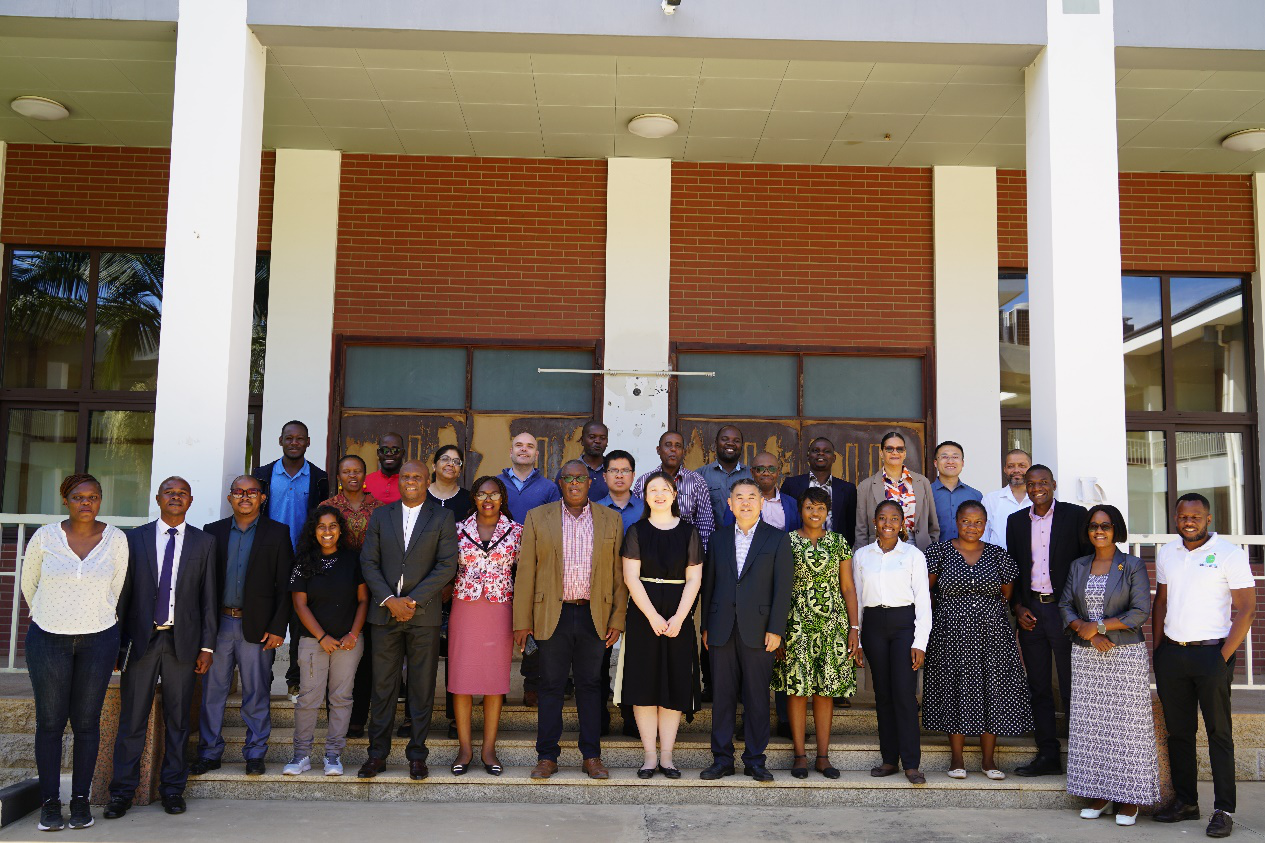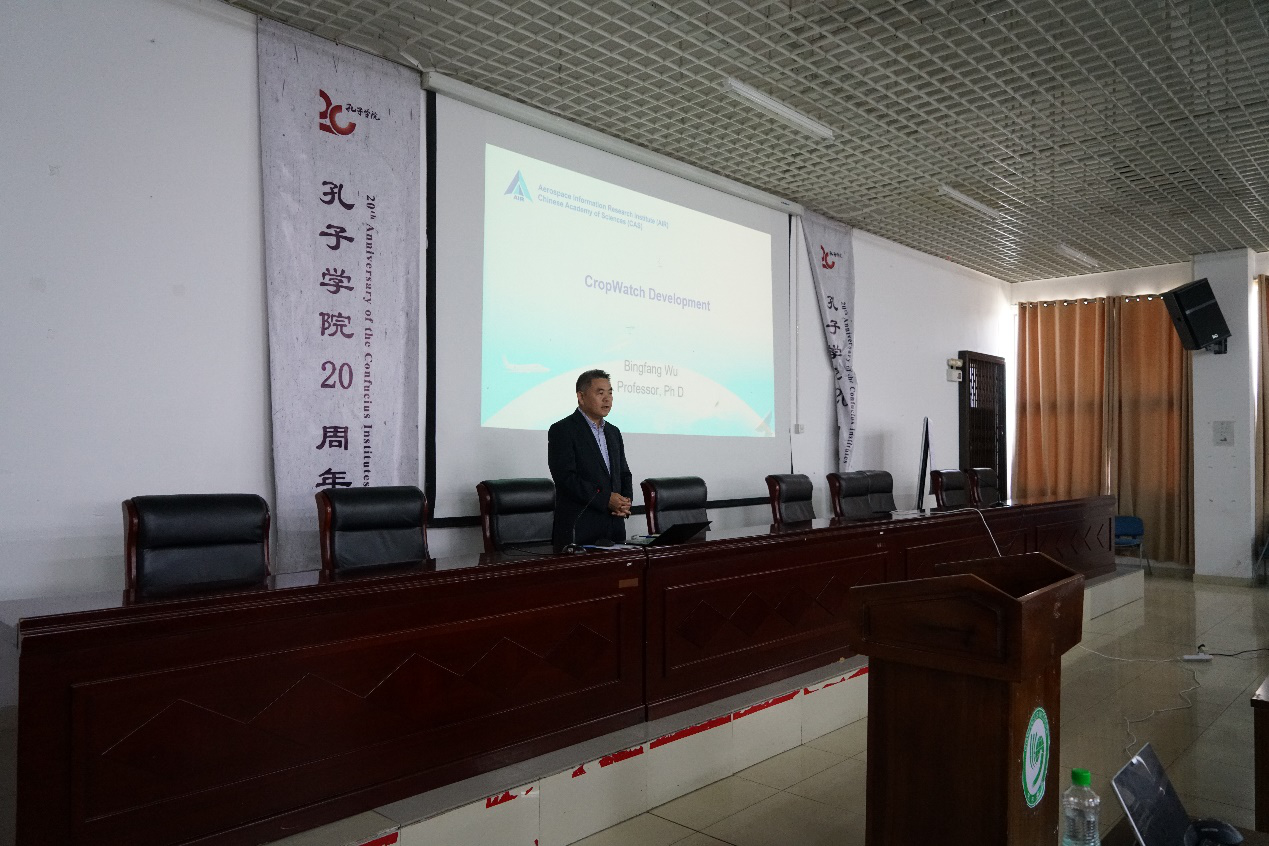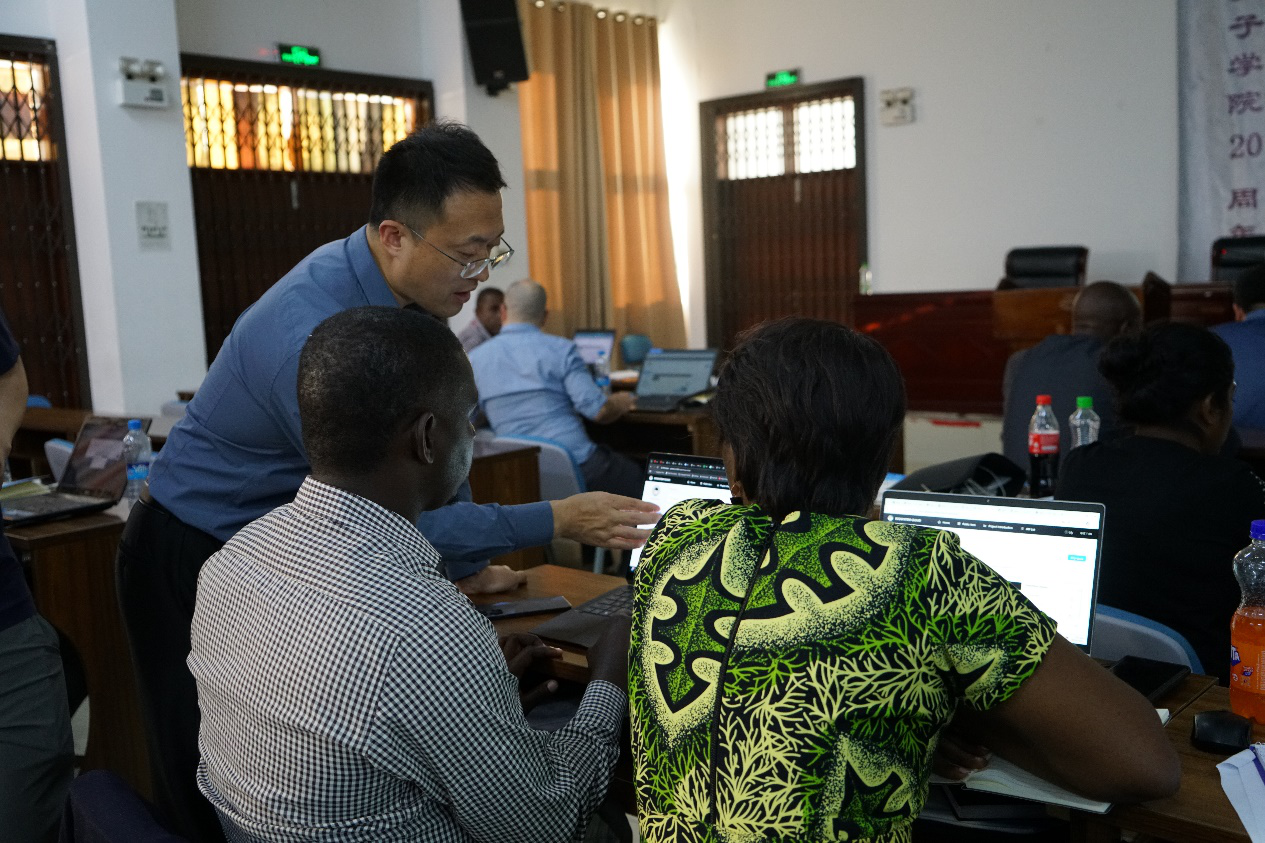On April 9-11, 2025, the training workshop entitled “Advancing Satellite-based Monitoring to Enhance Agriculture Resilience for the Global South” was held in Lusaka, Zambia, supported by the CAS-ANSO Conference Program 2024.
Co-organized by the Aerospace Information Research Institute of the Chinese Academy of Sciences (AIRCAS) and the University of Zambia (UNZA), the training workshop brought together around 50 participants from China, Botswana, Mauritius, Mozambique, South Africa, Zimbabwe, and Zambia. Attendees included government agency representatives, decision-makers, international researchers, professors, lecturers, and PhD students from universities across the region.
The opening session featured remarks from Ms. Feng Jingyuan (ANSO Secretariat), Prof. Elijah Phiri (UNZA), and Prof. Wu Bingfang (AIRCAS, leader of the CropWatch team). They highlighted Africa’s pressing food insecurity challenges and emphasized how crop monitoring can mitigate climate risks, ultimately helping millions of people to achieve zero hunger and reduce poverty. In her speech, Ms. Feng also introduced ANSO’s ongoing efforts in promoting food security and sustainable agriculture across the Belt and Road regions and beyond.
The CropWatch team delivered comprehensive training modules, covering topics such as CropWatch development, applications of 3S technology, machine learning models, and GPT in crop monitoring, as well as country-level analyses and practical case studies. The presentations sparked lively discussions during the Q&A session. Additionally, the team demonstrated the CropWatch cloud system and provided hands-on guidance to participants after technical sessions.
This workshop demonstrates ANSO’s dedication to fostering sustainable development through Science, Technology Innovation and Capacity Building (STIC) in the Global South. Moving forward, ANSO will deepen collaborations between Chinese and African research institutions to transform these technologies into applicable food security solutions. The initiative establishes a replicable model for South-South cooperation in addressing climate challenges.



